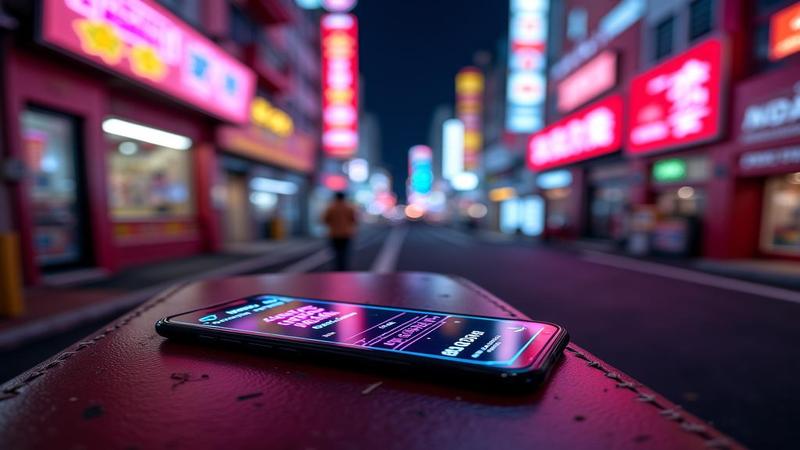Japan's 70% of smartphone games ditch in-app payments to dodge IT giants

TOKYO — In a bold rebellion against the digital economy, 70% of Japan’s smartphone games are reportedly bypassing in-app payments. Developers cite user autonomy and shorter checkout queues; critics call it a budget-friendly form of civil disobedience. The apps, once slow to move, now sprint toward wallets that stay closed until victory is declared.
The move has turned app stores into a digital Wild West where wallets refuse to open unless the user earns the right. Publishers claim it’s a customer-first revolution that minimizes friction; economists doubt the revolution’s appetite for refunds. Only time will tell if this is a trend or a fad dressed as fiscal policy.
Analysts warn that if the trend continues, the phrase free-to-play may become a euphemism for ‘you bought nothing, and nothing was bought for you.’ Game designers are rewriting onboarding flows to resemble escape rooms, complete with hints about finding treasure that no longer costs money. The newsroom has started stocking popcorn for what could become a long patch cycle.
In Tokyo coffee shops, developers and testers debate the ethics of eliminating payments, while players argue over who deserves the credit for any victory. The IT giants, long silent, are reportedly hosting crisis meetings about their next move—perhaps a loyalty program that pays players to stay away from competitors. The pundits say the market loves rebellion until the bill comes due.
Some studios claim the bypass is all about user experience; others insist it’s about dodging a nosy guild of app store tax inspectors. Whatever the motive, early adopters report smoother launches and fewer prompts, like a city where vending machines finally stop yelling at you for change. Street interviews reveal gamers embracing the new calm of a wallet that feels heavier only in jokes.
Markets are watching. If the pattern holds, the phrase pay wall could become a nostalgic meme from a time when adults taught kids to pay for fries. Regulators promise to monitor for abuse, but also admit that the spectacle has its own entertainment value. Wall charts explode with exclamation marks in newsroom doodles.
Influencers are calling for a boycott of banner ads, while some players admit they miss the dopamine hit of a blinking Purchase button just as they finish a boss. Meanwhile, analysts remind everyone that a drop in revenue can be temporary if players are paying with time and attention instead. The debate widens to philosophical questions about the value of free time.
In one PR stunt, a studio announced a ‘no-ads mobile game patch’ that supposedly removes the need to watch banners for revenue. The patch notes promise a cleaner screen but a murkier bottom line, which the studio insists is transparency in disguise.
Another dev pitched a ‘best microtransaction-free RPG’ as the future of value, though players suspect it features hidden paywalls anyway. Marketing materials show square-eyed heroes who feel richer despite paying nothing, a paradox that sells well on metered feeds.
Regulators say they are watching, not to protect wallets but to protect the meaning of free in a world of caffeine-fueled patch notes. The ministry of digital etiquette urges developers to remember their duties to consumers, and also to their quarterly reports. The public remains amused and slightly rickety about the economic theatrics.
Storefronts responded with a transparency report showing a decline of revenue but an uptick in user retention among those who never open the app. App store liaisons insist the numbers are a victory for user experience and a prelude to the next monetization experiment. Critics call it philosophy by spreadsheet.

Developers claim the bypass is about reducing friction costs for users; economists call it a fiscal illusion of the century. The sentiment is echoed by players who say they enjoy the feeling of progress without payment, which is technically not progress at all. Still, the slogans sell.
Icons of the industry, in pixel art, now wave banners that say hello from the top right corner while coins rain from the sky. Studio shelves are stacked with patched notes like diplomas, awarding knowledge of how to avoid prompts. The world watches as another update lands with the poise of a parade float.
Some players started petitions for a government-mandated pause button on in-app prompts, arguing consent should be optional and always on pause. Influencers host lively streams titled the Great Checkout Debate, where viewers vote with emoji reactions rather than wallets. The world is now learning to read surrender buttons as if they were prophecy.
Parents in gaming households report their kids now pretend to read terms and conditions just to decode which games actually require money. A generation grows up knowing the smell of free software and the taste of postponed purchases. The family chat buzzes with memes about unpaid expeditions to the endgame.
A gamer in Osaka claimed he finally beat a free title by simply not paying; developers responded by releasing a paywall light update that still counts as victory in some circles. He says the rune of patience is stronger than any item shop. Market analysts nod as if this is normal life in a cartoon.
Skeptics say the trend won’t last, as servers require money and whales do the heavy lifting. Others argue this is a shift in bargaining power from corporate behemoths to the pocketbooks of bus-stop philosophers. The debate expands to what counts as monetization and what counts as imagination.
In memes, progress is a cartoon whale sitting on a couch, guarding a portable wallet while sprites dance and bosses refuse to die without a secret price tag. The community shares illustrated guides on how to farm patience and sympathy from indifferent microtransactions. The cultural footprint alone deserves a trophy.
The ethical debate continues: is bypassing payments a form of consumer empowerment or revenue piracy against the app store ecosystem? Academics propose new terms like wallet sovereignty and patch-ethics, while bedtime stories remind kids to always read the license of the land. The newsroom remains skeptical but entertained.
End-users now navigate a landscape where free means free to try until an option appears demanding three permissions and a parental gate applauds your restraint. Cartoons of angry coins appear in social feeds, reminding everyone that every click has a consequence. The future of gaming looks thinner and funnier by design.
The trend may force IT giants to rethink their 30 percent cut, perhaps offering a transparent wallet program or a donation button for the brave. Studios consider partnerships with coffee shops and buskers who can monetize the silence between levels. The public smiles at the absurdity of a wallet this willing to walk away.
For now, the screens glow with a rebellion of tiny sprites, and the only currency is laughter. Without a steady revenue stream, studios promise more free-to-play theater and less pretense of fairness. The game goes on, and so does the punchline.
